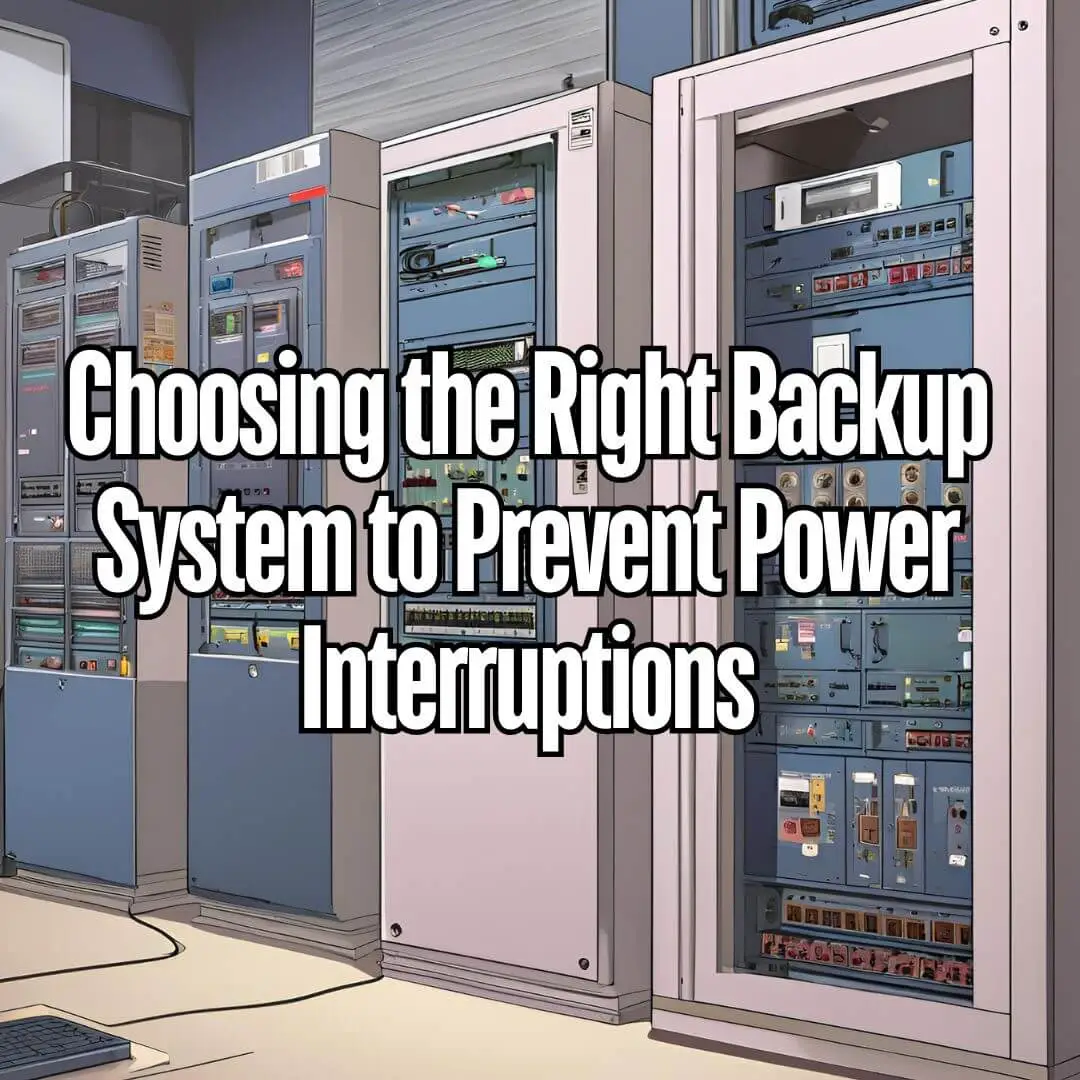
Choosing the Right Backup System to Prevent Power Interruptions
As the world becomes more dependent on technology, homes and businesses expect constant access without the fear of power interruption, so selecting a backup system has become indispensable. From a work from home arrangement to a sizable space of office units, a power flow disruption can cause data loss, hardware damages and, at times, massive productivity loss. A dependable backup system can provide a safety net for such interruptions.
Understanding Power Backup Systems
Power backup systems are designed to provide emergency power for electronic devices if another power source fails. Because various solutions offer varying levels of protection and support, choosing an appropriate backup to meet your needs is essential. Backup generators and batteries can keep the lights on for extensive systems. Still, an UPS power supply delivers fast, protected power to just what you need, making it perfect for computers, servers, and other vital electronics.
Types of Backup Systems for Power Continuity
Power backup systems have many types, each with unique advantages for which application it suits best. Below, we have a comprehensive overview of the most popular types:
Uninterruptible Power Supply (UPS) Systems
One of the best solutions for emergency power back is UPS (uninterruptible power supply). This device acts as a power buffer when an interrupted AC supply and protects sensitive equipment from immediate shutdown during a power failure that causes data loss. Surge Protection: UPS systems usually have built-in surge protection that shelters the hardware by preventing voltage spikes.
Backup Generators
Backup generators are often utilised in the commercial and industrial sectors, where long periods of power outages may occur more commonly. UPS power supplies put out electricity immediately when the power goes down, which is why they are often used for sensitive equipment. However, they can run larger systems for many hours at long and low power capabilities, making them ideal for businesses with high power requirements.
Battery Backup Solutions
A battery backup is an energy store that can provide power if the grid goes offline. This gives them a wide range of use cases for both short-term and long-term situations. Larger applications may consider a standalone battery backup system due to the most common UPS power supplies containing their built-in batteries. These systems are better if you need a longer runtime and scalability, like in data centres or server rooms.
Why a UPS Power Supply is a Smart Choice
A UPS power supply is a medium-sized, efficient, and reliable solution for many small to medium-sized applications. Here’s why:
- Instantaneous Response: A power outage that lasts even a second can be devastating for sensitive electronics. A UPS power supply switches to a battery in milliseconds, ensuring that data is never lost or hardware damaged due to a sudden cut-off.
- Surge Protection: Most UPS systems include surge protection, protecting attached devices from sudden electricity spikes. This comes especially handy for regions that face regular power fluctuations.
- Power Conditioning: Many UPS units can also condition power, ensuring a consistent voltage is sent to your devices. Smooth, continuous power is necessary to safeguard sensitive electronics from long-term damage and allow them to operate at peak efficiency.
- Ease of Installation: While backup generators require fuel and professional installation,ups systems are relatively easy to install and maintain. These are directly plugged into the wall and connected to your devices, so you get protection right out of the gate.
Key Considerations When Choosing a UPS Power Supply
Choosing the correct UPS power supply requires considering multiple factors to find what matches your requirements.
- Capacity and Load Requirement: You want to calculate the total power load of appliances you plan to connect. Choose a UPS with greater capacity than your total load in case of fluctuations and extra devices.
- Runtime and Battery Life: Although most of today’s UPS systems are only able to provide power for minutes at a time, there are some more extended battery units available, and they can give you enough time to save your work and shutdown your equipment correctly. Select a system you anticipate will last and how long your outage will be.
- Number and Type of Outlets: Different devices have different plug configurations, so first, make sure the UPS has enough power outlets to accommodate all your critical equipment. In addition, several UPS features include customary shops and built-in USB ports.
- Management Software: Most modern UPS systems have management software enabling you to monitor performance, check battery life, and receive power status alerts. This is useful in an office environment with multiple computers and users that rely on consistent power.
- Form Factor and Size: UPS units are available for server applications on desktops and larger racks. Consider this if you are buying for a populated office location or data centre; ensure the unit will fit in your area and where it is meant to be placed.
Conclusion
A UPS is a lifesaver for anyone looking for an uninterrupted power supply that protects against power outages right away and for devices like computers, network devices, and any other electronics/gear that you use it with. Invest in a suitable UPS; you can protect your data, save on hardware damage, and have less downtime during unannounced power outages. Evaluating parameters such as load capacity, battery life, and outlets will allow you to select a UPS that will tailor your individual needs and make your setup more resistant.
You may also like: Melbourne’s Owners Corporations





